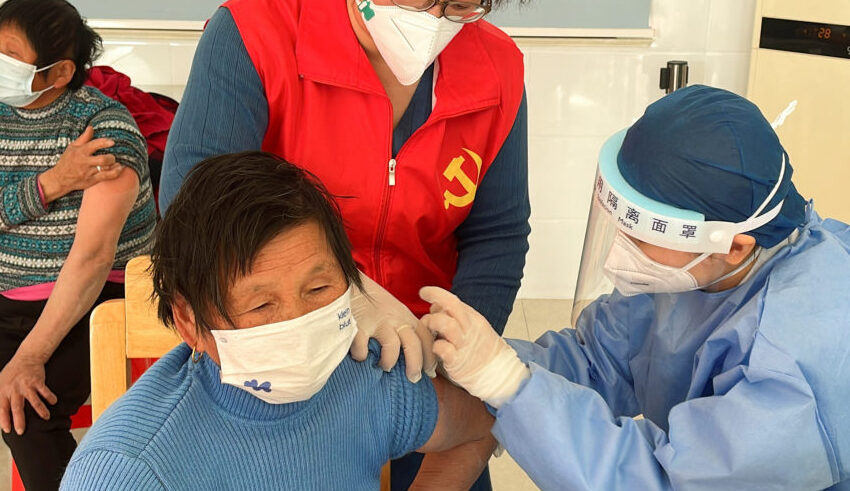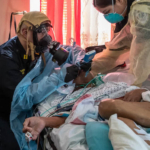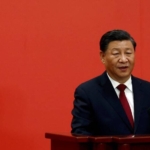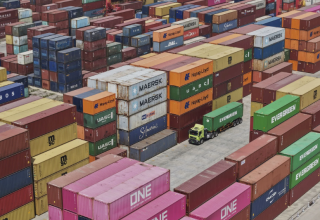
A hospital in Shanghai has informed its employees to prepare for a “tragic struggle” with COVID-19, as it anticipates that half of the city’s 25 million residents would be infected by the end of the year as the virus sweeps through China mostly uncontrolled.
China has begun dismantling its “zero-COVID” policy, which has taken a significant financial and psychological toll on the nation’s 1.4 billion citizens, following public protests and an unrelenting spike in cases.
In spite of this, China’s official death toll since the epidemic began in early 2020 remains at 5,241 — a fraction of what most other countries experienced.
China recorded no new COVID-19 fatalities for the second day in a row on December 21, despite the fact that funeral parlor workers said demand has increased dramatically over the previous week, driving up prices.
Authorities, who have reduced the criteria for COVID-19-related mortality, have confirmed 389,306 symptomatic cases.
As a result of the loosening of limitations across China, fewer tests are conducted, according to some experts, rendering official data inaccurate.
The Shanghai Deji Hospital projected on its official WeChat account late on Wednesday that there were around 5.43 million HIV-positive individuals in the city and that 12.5 million will be infected by the end of the year.
The hospital stated that Christmas Eve, New Year’s Day, and the Lunar New Year will be hazardous this year.
“In this awful fight, Greater Shanghai as a whole will collapse, and we will infect the whole hospital staff! We will infect the entire household! All of our patients will become unwell! We have no alternatives and cannot escape.”
Keep Reading
In an effort to prevent the virus from spreading across China, Shanghai residents suffered a two-month lockdown that ended on June 1, during which time many lost income and had limited access to essentials. During these two months, hundreds perished and tens of thousands were infected.
According to experts, China might see over one million COVID-19-related fatalities in the coming year.
The president of the World Health Organization expressed alarm about the increase in illnesses and encouraged the government to concentrate on immunizing individuals at the greatest risk.
WHO Director-General Tedros Adhanom Ghebreyesus told reporters that for a full review, the organization need more specific data on illness severity, hospital admissions, and the need for critical care units.
China’s policy reversal caught an unprepared weak health system rushing for beds and blood, pharmacies for medications, and officials hurrying to construct special facilities.
Smaller cities located distant from the prosperous eastern and southern coasts are especially susceptible. Tongchuan, a 700,000-person city in the northern province of Shaanxi, issued an appeal on Wednesday for all medical personnel who had retired within the previous five years to join the fight against COVID-19.
In a public notification, it stated, “Medical institutions at all levels in the city are under tremendous strain.”
State-run media said that local governments were attempting to address prescription shortages, while pharmaceutical corporations worked overtime to increase supply.
According to the Global Times, Dongguan, a large city in southern China, has received 100,000 ibuprofen pills, which will be given to 41 state medicine stores this week before being made available for free.
Since December 17, three million ibuprofen tablets have been delivered daily to medical institutions and retail pharmacies in Wuhan, the key city where the virus was initially found in late 2019.
Authorities in Sanya, on the southern island of Hainan, have arranged for 18 pharmacies to dispense free medication, while pharmacies in Zhoukou offer up to ten free pills each day to residents who produce an ID card.
Germany has dispatched its first shipment of BioNTech 22UAy.DE COVID vaccinations to China, where they will first be administered to German expats. Berlin advocates that other foreign nationals be permitted to take them.
In China, they would be the first mRNA vaccinations deemed most effective against the illness.
China has nine authorized COVID-19 vaccines produced locally.
Some Chinese experts estimate that the COVID-19 wave will reach its height in late January, and that normalcy will return in late February or early March.


























